Not everyone is fortunate enough to have a support system from their family, which often leads to estrangement from some of the most important people in a person’s life. Having to go through it alone can further result in overwhelming feelings like guilt, stress, exhaustion, and frustration.
Redditor South-Gold-1475 knows this all too well. Throughout his childhood, his mom and stepfamily pushed him aside, treating him less than. But after he finally left the household, he was able to do quite well for himself. Meanwhile, the family found themselves on the brink of homelessness, asking for his help. Faced with confusing feelings, he turned to netizens for their unbiased opinions.
Without family support, it can be significantly harder to go through life

Image credits: Pressmaster/Envato elements (not the actual photo)
This guy somehow made it, but after some time, the family remembered him, asking for financial help
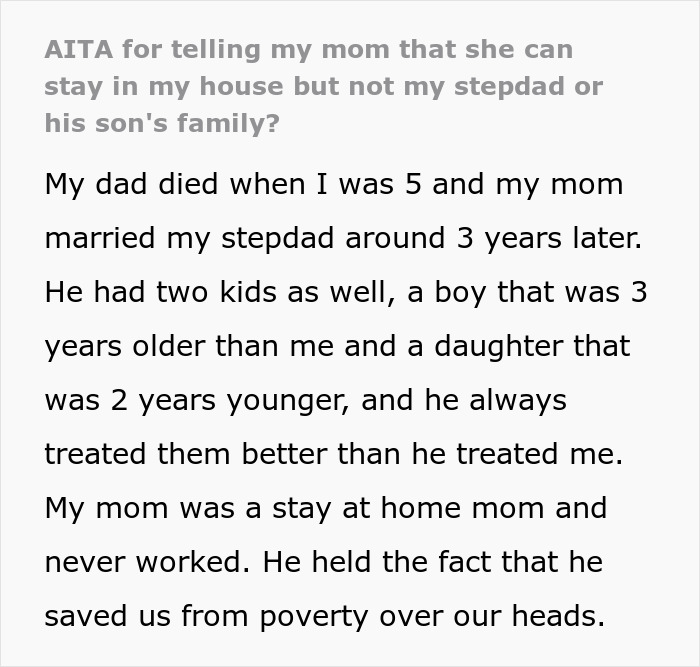
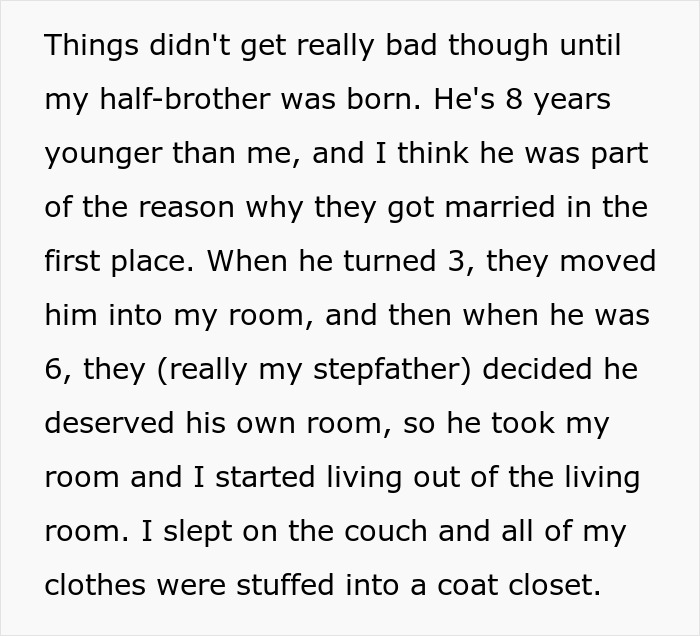
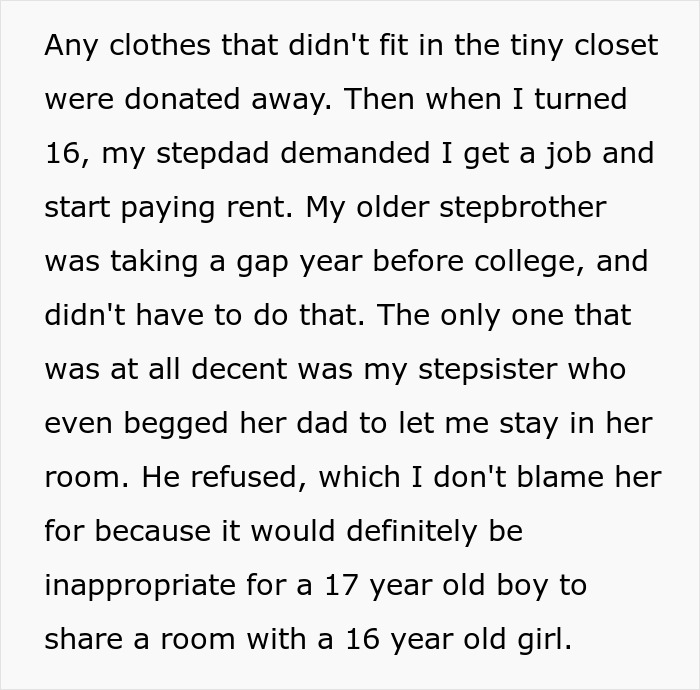
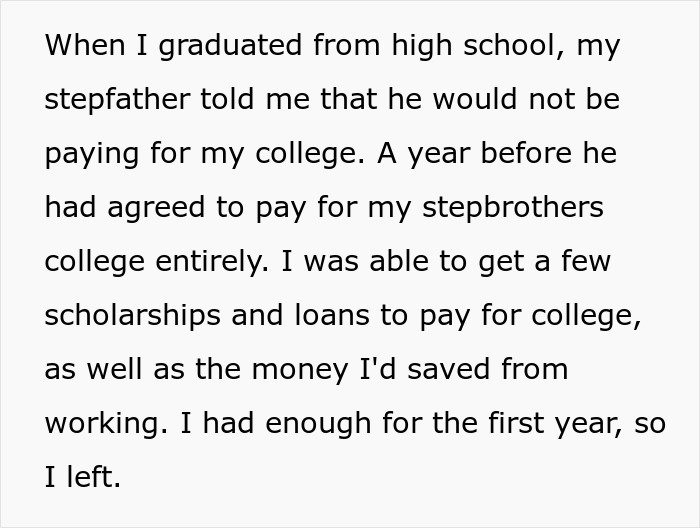



Image credits: Rodolfo Quirós/Pexels (not the actual photo)

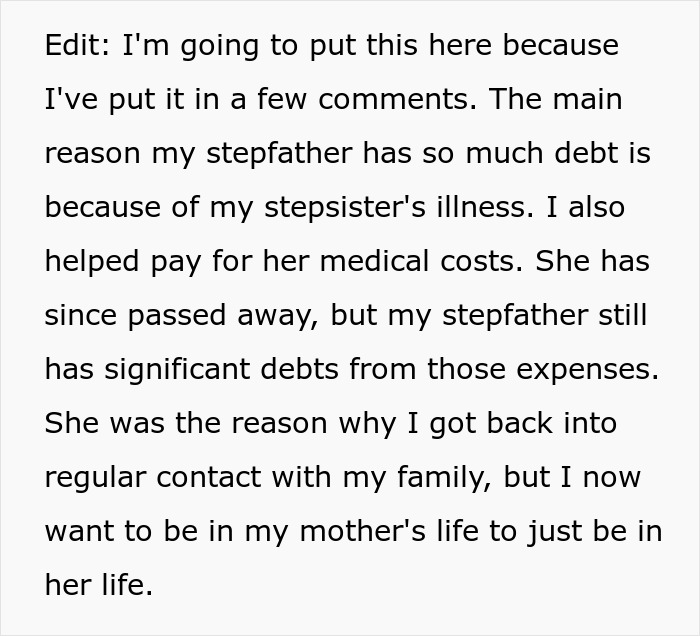
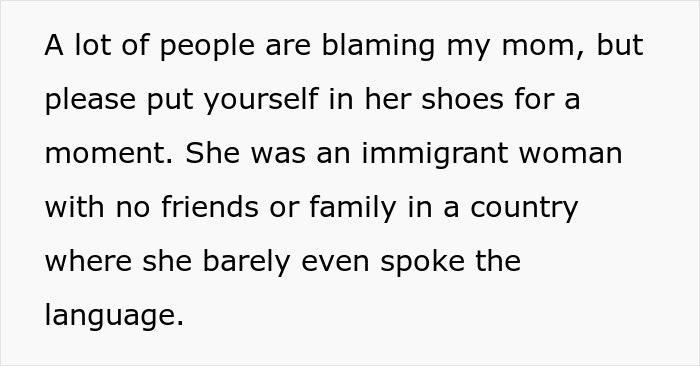
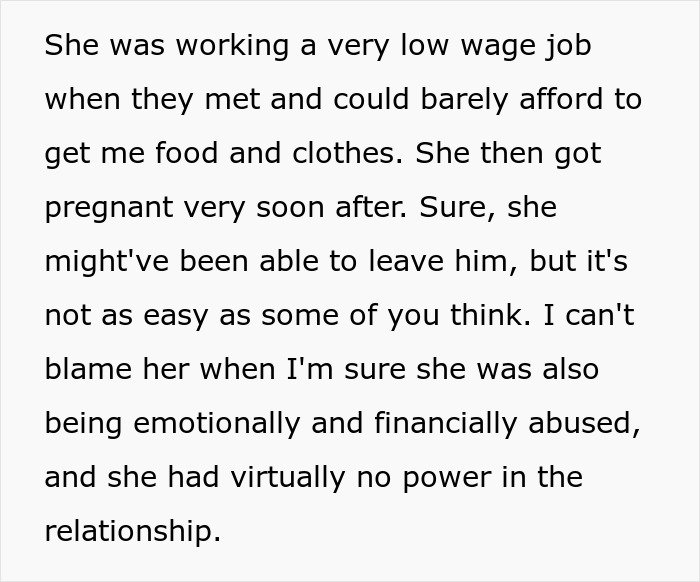
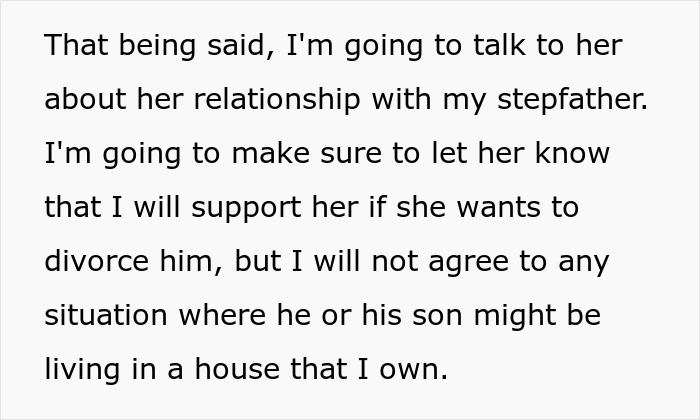

Image credits: YuriArcursPeopleimages/ Envato elements (not the actual photo)
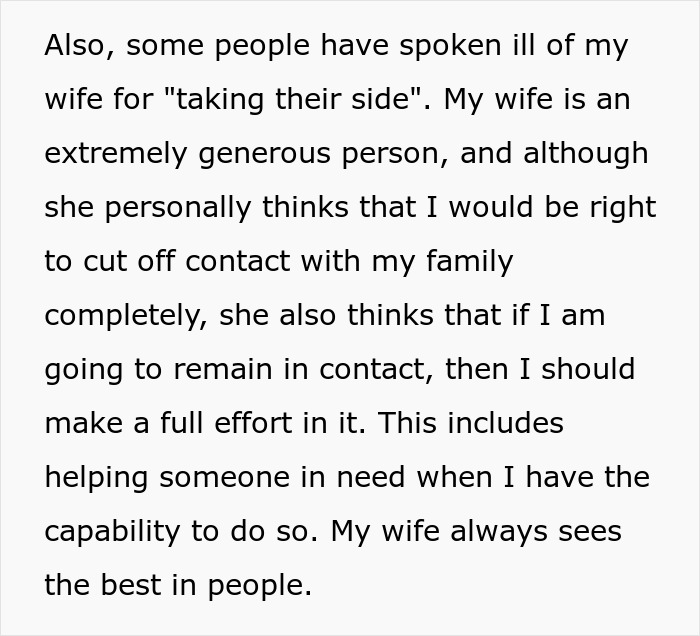
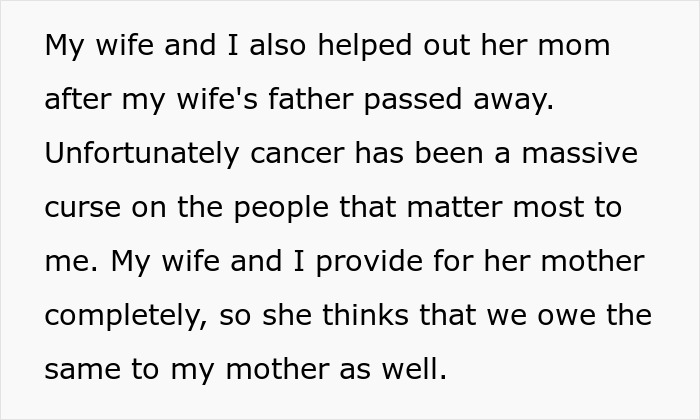
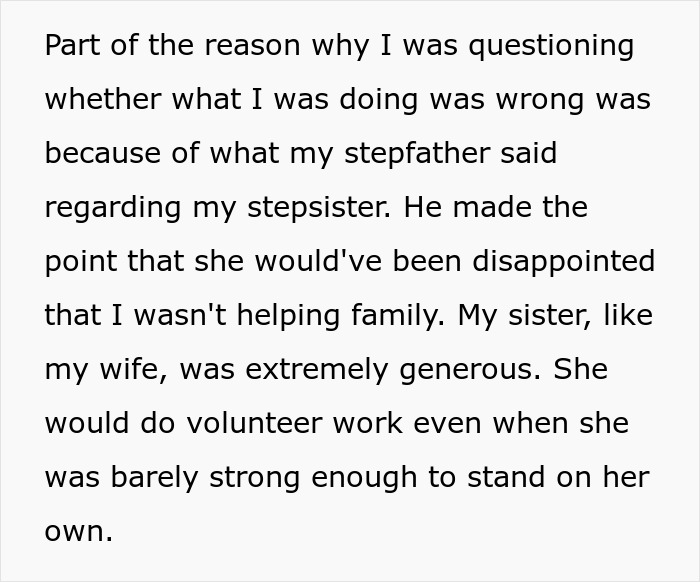
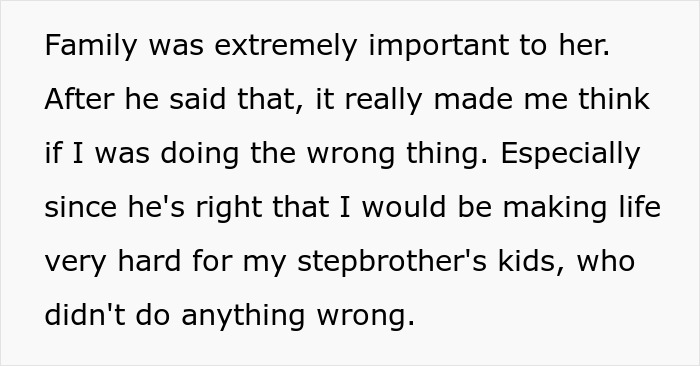
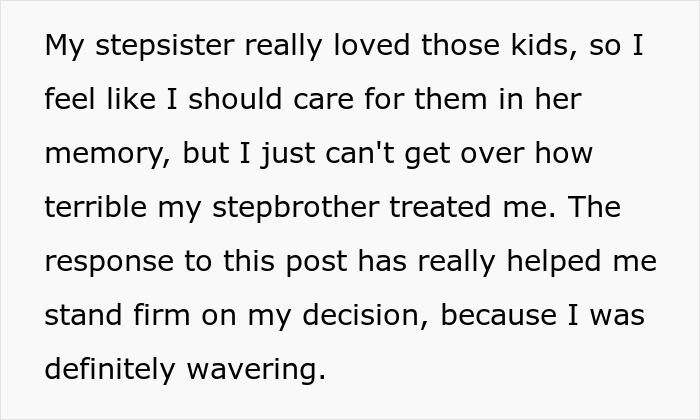
Image credits: South-Gold-1475
It’s common for family members to pretend that nothing happened after they hurt each other
Forgiving family members when they cause pain is far from easy, but it can be just the thing that a person needs to heal. Licensed counselor Julia Hogan urges people to keep in mind that forgiveness doesn’t equal forgetting.
She admits that it’s common for family members to pretend that nothing happened after they hurt each other. But when a person really forgives their loved one, they aren’t saying, “It’s okay that you hurt me. I’ll just ignore it and pretend like it never happened.” They’re actually trying to communicate that “you hurt me, it was wrong, and I’ve been deeply affected by it. But I am choosing to not wish revenge or retribution on you.”
Forgiveness also doesn’t mean that their behavior is acceptable. Therefore, it might be a good idea to set some boundaries that respect the wronged person’s feelings. Hogan said, for example, that if your relative suffers from substance use disorder and is unwilling to reach out for help, make it clear that you won’t be around them when they’re drinking. She notes that taking such measures is crucial to protecting an individual’s mental health.
If the person is continuing their hurtful behavior, Hogan recommends limiting the time spent with them. The setting in which you interact with them also matters. You can choose to meet only in public places or when other family members are also with you. In addition, during such meetings, it’s advisable to prevent any conflict or tension from arising by avoiding sensitive topics and engaging in heated exchanges. Remember, there’s always the possibility of removing yourself from a conversation when things become hostile.
There are times when it’s okay not to forgive
The benefits of forgiving someone might be worth the trouble, as research has found that it can improve an individual’s stress levels and mental and physical health symptoms. It was also revealed that people with more lifetime stress and lower levels of forgiveness suffered from worse mental health as they got older. On the other hand, those with higher levels of forgiveness weren’t affected by lifetime stress as much.
Letting go of grudges is important, as they can carry over to other relationships, negatively affecting them. That said, there are cases when it’s not right to excuse someone for their wrongdoings. A person shouldn’t feel pressured into letting someone back into their life if they constantly demonstrate a pattern of abuse.
Some indications that an individual shouldn’t forgive someone are if they are still feeling the effects of their actions because of how they were treated in the past or if they aren’t generally ready to take that step yet. It’s okay to tell them that, even though they might’ve expressed their apologies and offered to fix their future behavior. If they don’t respect your boundaries, they also aren’t deserving of forgiveness yet, as they aren’t considering your needs and well-being.
Even though you might not rebuild the relationship you would want with a family member who wronged you, it’s also possible to forgive without ‘making up.’ Forgiveness is something an individual can do by themselves and for themselves without having to explain it to others.
The readers supported the author in the comments
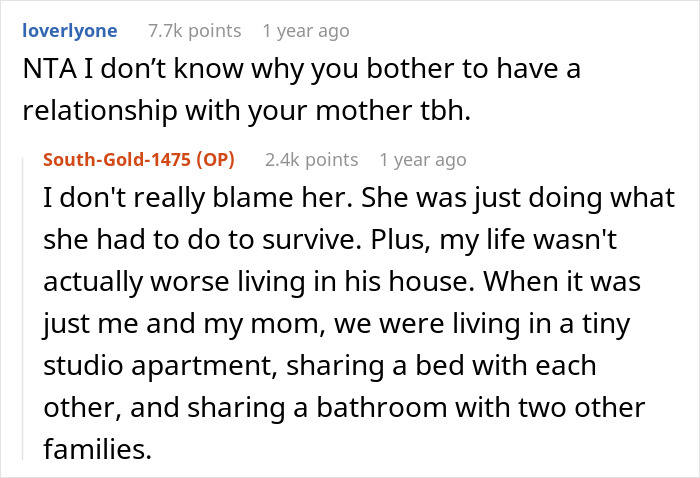

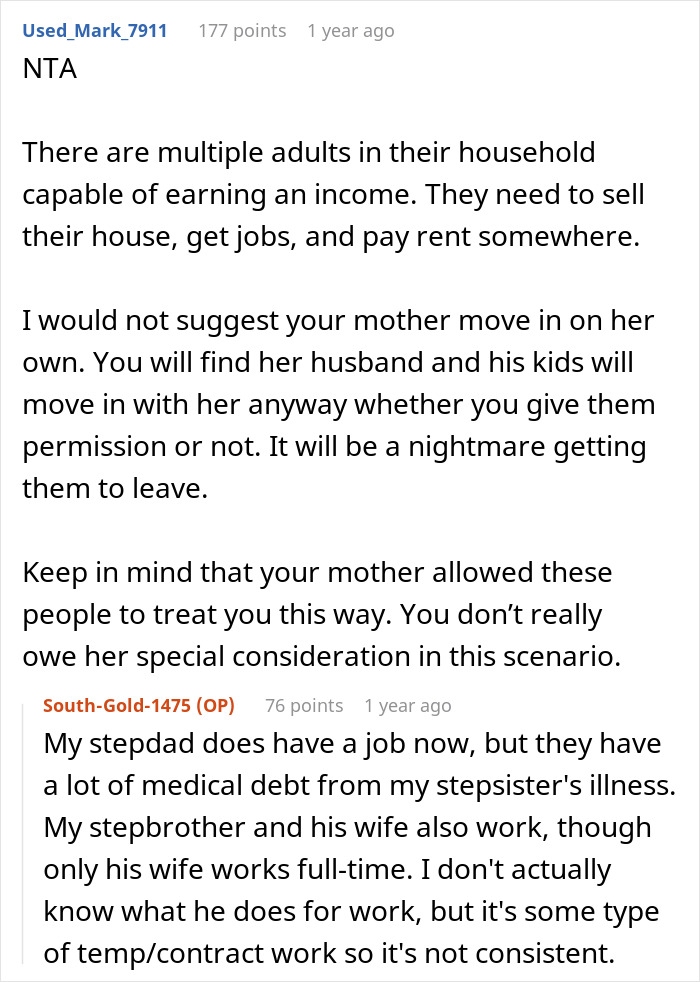


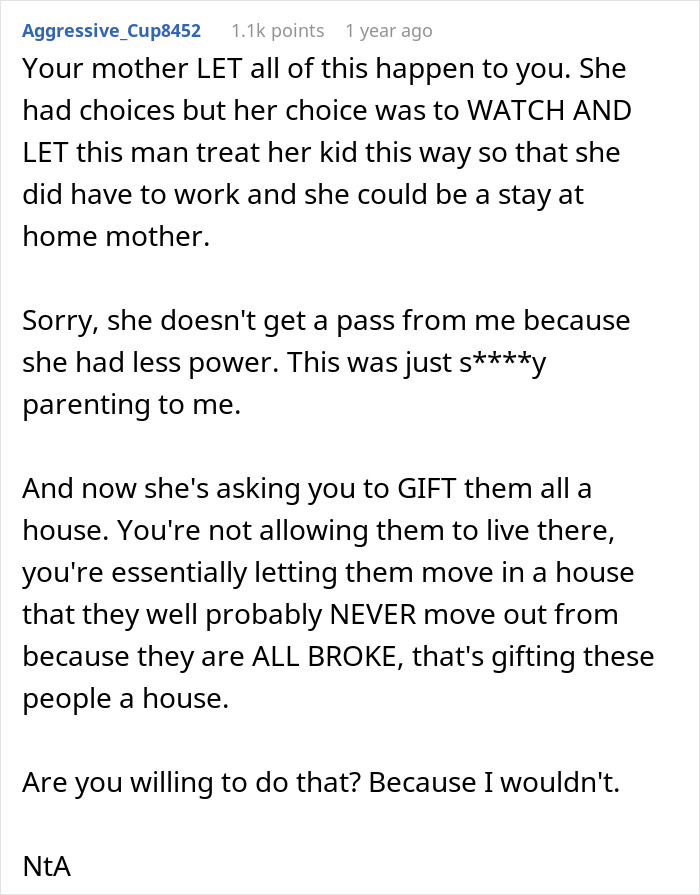
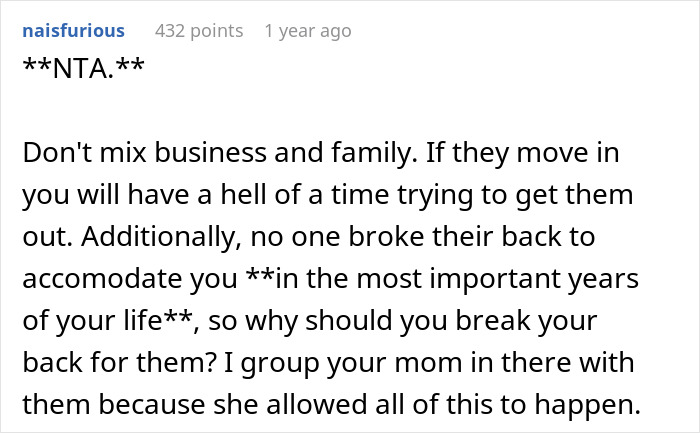
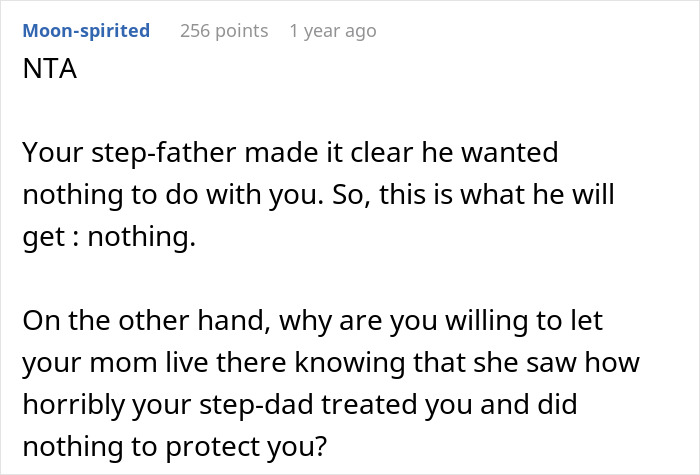
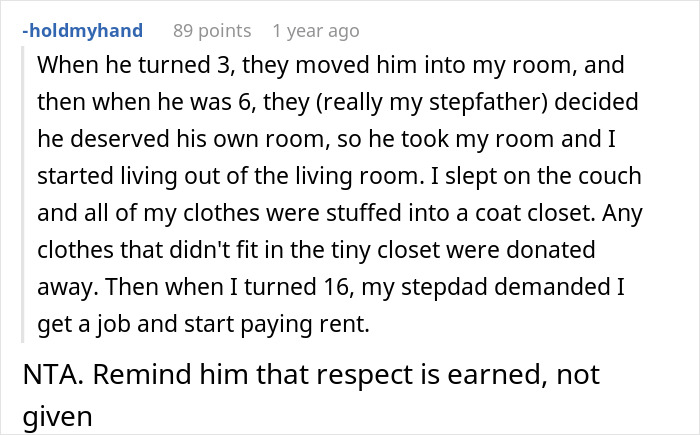

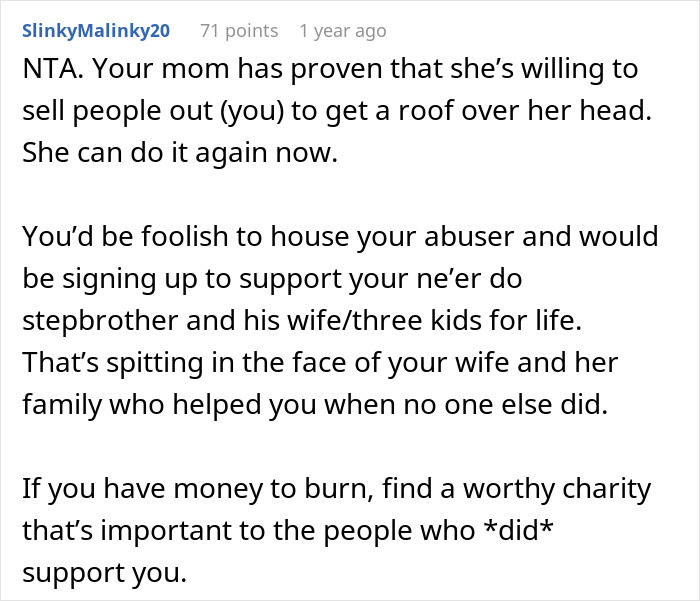






![“[Am I The Jerk] For Asking My Friend To Bring Her Own Food When She Asks To Come Over?”](https://www.boredpanda.com/blog/wp-content/uploads/2025/04/friend-keeps-eating-groceries-cover_800.jpg)









 English (US) ·
English (US) ·